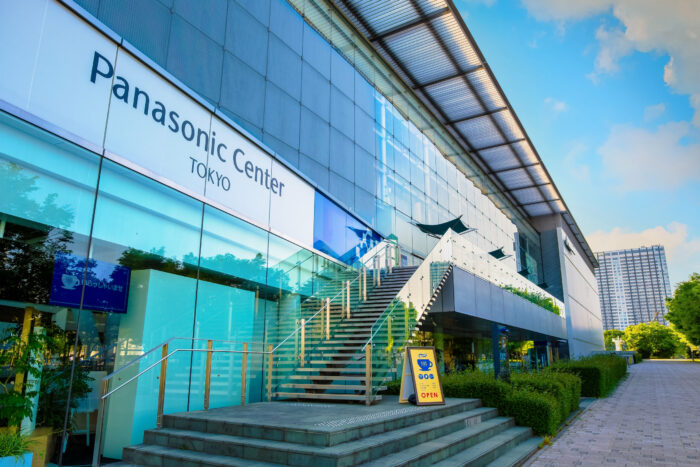More companies implementing 4-day workweek in Japan

Panasonic Corp has joined a small, but growing, number of Japanese companies to offer staff a four-day workweek to encourage better work-life balance.
Singapore warns against legislating WFH arrangements

The country believes that the approach to workplace flexibility should be inclusive, as remote working is not practical for all types of workers.
More than 30% of Japanese dads take parental leave

The ratio of eligible male workers who took childcare leave in fiscal 2020 exceeded 30% in 42 of the country’s 100 leading companies.
Companies in the Philippines urged to reskill and upskill workers

The government is focusing on sector development, identifying skills that are in demand and needed by industries as they adapt to pandemic-driven changes.
Companies in Japan urged to innovate by business groups

Japan’s major business organisations want companies to spur economic growth, and to view the pandemic as a business opportunity.
India’s central government allows 50% of staff to WFH

Amid the recent surge in COVID-19 cases, the central government is allowing half of its employees below the rank of under secretary to work from home.
Singapore’s professional services sector told to redesign jobs

Job redesign and employee well-being will be key to retaining employees, says Indranee Rajah, Second Minister for Finance.
61.7% of Malaysian companies want to continue with hybrid work model

A survey has shown that the majority of businesses in Malaysia are opting to continue with the hybrid model of on-site and remote working.
Taiwan increases paid leave for expectant mothers

The amended law also allows spouses of pregnant women to take up to seven days of paid leave to attend prenatal appointments with their wives.
Thailand mandates government workers to WFH

To curb the spread of the Omicron virus, all government officials have been directed to work from home (WFH) after the New Year break.
More South Korean employees want to work shorter hours

77.8% of salaried workers are in favour of the 52-hour workweek, a policy launched in 2018 to reduce long working hours.
India likely to continue WFH policy into 2022

The Central government has started discussions to set rules to regulate work from home (WFH) amid rising cases of the Omicron variant in the country.
Your 2021 scorecard on digital transformation

How has your organisation fared in terms of digital transformation efforts in 2021, and what can be improved?
China moves to reduce workplace gender discrimination

Under new regulations, employers cannot ask female job applicants if they intend to get married or pregnant, or to make them take pregnancy tests.
Retaining talent begins with understanding what employees want

If managed well, organisations can transform the ‘Great Resignation’ to the ‘Great Attraction’, attracting and retaining the best talent.
Returning to the workplace with confidence

Microsoft’s Return to Workplace solution is helping to create a safe and productive work environment in a resilient and digitally inclusive Singapore.
5 keys to innovating like Apple, Cirque du Soleil, and Google

Dr C J Meadows, Director, The Innovation & Entrepreneurship Center at SP Jain School of Global Management, identifies keys to innovation.
Driving better business outcomes and employee engagement with DEI

Sophie Guerin, Head of Diversity, Equity, & Inclusion, APAC, Johnson & Johnson, highlights how organisations can embrace and integrate DEI.
Majority of South Korean businesses opt for WFH even after pandemic

About 75.2% of businesses said they plan to either continue remote-work policies at the current level or partially downscale it when the pandemic ends.
The whole new world of work: Emerging trends in 2022

Jeanne Achille, Founder and CEO of The Devon Group, describes emerging trends that HR needs to consider for 2022.
HR In 2022: Mission First, People Always

Jason Averbook, CEO and Co-Founder of Leapgen, explains why creating a people-centric workforce experience will be a key HR objective in 2022.
WFH no longer default arrangement in Singapore

From January 1 next year, up to 50% of employees who can work from home will be allowed to return to the office.
Indonesia to implement job-loss insurance in 2022

The government is committed to implementing the Job Loss Insurance (JKP) programme, commencing 2022, said the Manpower Ministry.
Singapore prepares for employees’ return to office

About 97% of the labour force have been fully vaccinated against COVID-19 with about 75,000 workers still unvaccinated as of December 5.
Prenatal leave sought for working fathers-to-be in Taiwan

Democratic Progressive Party legislator Fan Yun has called on the government to grant expectant fathers a week of prenatal leave.
Talent attraction begins with employer branding

Top Employers Institute’s Ammara Naeem explains why a well-executed employer branding strategy is key to attract and retain talent.
3 priorities to consider when managing EX in a new world of work

As hybrid work becomes increasingly prevalent, Qualtrics highlights how organisations can better manage EX programmes.
Nine businesses in Singapore double paid paternity leave from 2022

Fathers who work in these firms will be able to enjoy four weeks of paternity leave, an increase from two weeks under current regulations.
Majority of Japanese companies to freeze or cut wages next year

About 54% of companies plan to keep salaries, including bonuses, unchanged next fiscal year, 4% plan to cut them and 42% expect to raise wages.
HR in 2022: Shifting the power back to employees

Creating a people-centric workforce experience that reinforces organisational purpose and culture will be a key HR objective in 2022.

